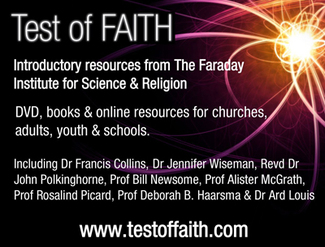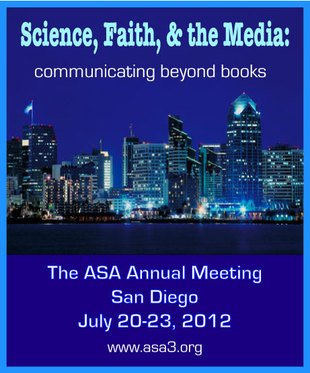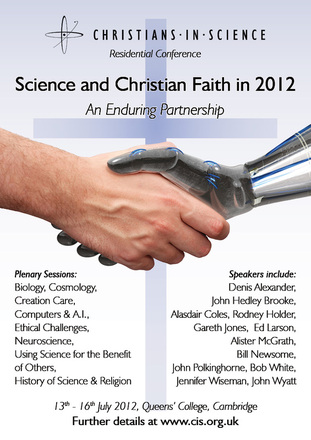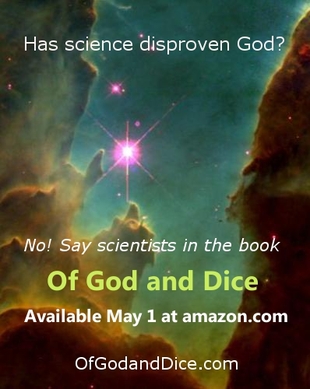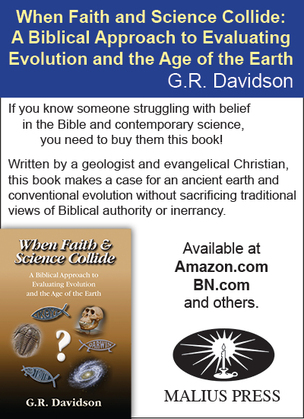Featured Scientist
astronomer/podcaster Pamela Gay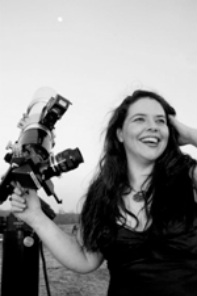
by Emily Ruppel
“I had one of those childhoods that was punctuated by sudden change,” says the grainy, computer-filtered voice of Pamela Gay via Skype chat. It’s a typical winter day in Boston. Cold comes in through the shut window of my bedroom, where I’ve retreated for sanctuary from the alternately probing, authoritative tones of NPR anchors and their guests. The noted astronomer/podcaster/writer and I are talking as part of a collaborative project for the ASA, and partly for this story about her life as a Christian in the sciences—the experiences that have helped shape her into a unique kind of leader in both the astronomical and Christian communities. Pamela spent the first part of her childhood in California, where she was brought up in the Presbyterian Church. "We spent every Sunday sitting in a church pew,” says Pamela, “and every summer learning more about Christian faith in Bible camp." Notably, she’s speaking with tones of fondness I’ve rarely heard from others recalling being compelled to go to Vacation Bible School in the zenith of the summer season... When Pamela's family unexpectedly moved to Massachusetts (just after Christmas, when Pamela was in the second grade), they ended up settling into a traditionally Catholic neighborhood in Westford, MA. When they first started living in New England, Pamela's family felt the lack of a Christian culture similar to the one they knew in California. “Because nothing familiar to us existed, my Dad started a new Bible study and prayer group in our Westford home. He was always working to build and strengthen a society of believers around him,” says Pamela. As a computer engineer by trade, whether Pamela’s father was in the process of building new technologies or communities, he was committed to thinking logically and critically about every choice he made, a practice he taught to Pamela (an only child) when the family gathered for worship at home. “When I learned about Biblical faith and Christianity, I was taught to think about the larger historical and cultural backdrop,” says Pamela, “so it was completely rational to have a critical view on every topic—even my own faith. Most of my Christian education occurred at home in these question-friendly Bible studies and prayer groups.” It wasn’t until she’d entered high school at Westford Academy that Pamela entered a formal church, again. A boy she was dating invited her to come to the megachurch he and his family attended. Pamela listened with curiosity when the pastor and youth leaders made large, sweeping moral pronouncements, like the observation that non-Christian contemporary music is sinful, and that their parishioners should steer clear of certain types of popular literature. As a precocious teenager who had been thought to think twice about everything she was told, Pamela found this mindset, “Very odd.” “I was always taught that you don’t have to live by the values you’re exposed to, but here this guy I was dating had been surrounded by people who lived their life away from all potential sinful influences. I started raising my hand—a lot. Eventually, I came to believe that if you intentionally filter your experiences away from every type of sinful influence, then you’ll never get exposed to other people’s worldview, and you can’t possibly understand them if you don’t have any experience or respect for the way they live their lives.” When Pamela went to Michigan State University to major in astrophysics, she joined the Intervarsity Christian Fellowship, and was struck by the diversity of the people she met there—a few of them isolationists, but many more whom she saw as trying to think, confront, and be activist about their faith. It was through Intervarsity's Student Missions Conference, Urbana, that Pamela first heard the term “tentmaking” in reference to Christian leadership. “I was at the Missions Conference in January of 1994,” says Pamela, “when I learned about tentmaking. It's a term that comes from the time the apostle Paul spent working as a tentmaker (literally) while living in Corinth and building up the early Christian church. He worked an outside job partly to not put financial strain on those nascent church communities that would otherwise have to support him, but he also used this occupation as a vehicle to talk to others about the Christian faith. “At the conference, I remember listening to a talk by these two people who were living in China, a medical doctor and a nurse, who explained that in many of the places they visited in China, the local people knew about western things like Coca-Cola, but didn’t know anything about the life of Jesus. At that time, China didn’t allow missionaries, so the only way to go there as a Christian witness was to do so as a professional—a medical professional, for instance. A good doctor could talk to people about their personal faith without first building a church around their ideas, which would have been dangerous.” Pamela went on to complete her PhD in Astrophysics at the University of Texas, then worked at Astronomy magazine for a year, but quickly realized she’d be better suited to a life in academia than one in publishing. She went from there to Harvard to work as an Instructional Lab Associate, meanwhile conducting a collaborative project with both professional and amateur astronomers in variable star observation. “When Keats asked for ‘a love as constant as the stars,’ he was actually asking for a love that exploded periodically,” illustrates Pamela. “While our sun and other stars appear to be very constant, that’s only because we can’t see with our naked eye the changes they’re experiencing. But stars in general do vary—there are stars out there that suddenly get 100 times brighter, some that grow twice as bright and then fade away in a single day… They do things that are very interesting and that we’re trying to understand.” Pamela currently works at Southern Illinois University teaching astronomy and directing a citizen science project that involves using online data from the Lunar Reconaissance Orbiter to map the surface of the moon. No matter what their academic background, human beings are far better at recognizing physical features than a computer algorithm—just think of the frequent failures of face recognition software on iPhoto, says Pamela—so she’s become an expert at recruiting volunteers from around the world to spend spare hours marking craters on the moon. “It’s a lot more productive than playing Angry Birds,” she says. Engaging members of the general public to take an interest, not to mention an active role, in advancing scientific progress may seem like quite a mountain to climb, but for Pamela and others like her, it’s a far less precipitous task than engaging fellow scientists in productive dialogue about an equally complicated topic: Christian faith. “When asked what I believe, I tell the truth,” Pamela writes on her personal website, starstryder.com. “But I have to admit that while I am never afraid to say I am an astronomer, I am always afraid to say I am a Christian. Scientists and Christians are both humans and given to passions. They are fallible as individuals, and given to agendas that go beyond the narrow confines of what science or the Bible says. As humans, they can yell, and avoiding people who yell is one of my (not necessarily low down the list) goals in life.” Over the years, Pamela has dealt with her distaste for prejudice and intellectual bullying by remembering the story of quiet workfulness and faith that she heard from those Chinese missionaries at the 1993 Urbana conference. Now self-labeled as "A tentmaker in the skeptics movement,” Pamela has given headlining, standing-ovation-receiving talks as a speaker at various scientific conferences, including The Amazing Meeting (an international gathering for largely atheist scientists and thinkers, where names like Bill Nye and Neil DeGrasse Tyson have also been featured). She tells me that after the applause dies down at her lectures, there are always people who will come up and talk to her about faith and issues of faith. There’s a good-humored smile in Pamela’s voice when she admits that “only sometimes” are other attendees' views so polarizing that she finds herself wishing they’d fall into a black hole. “Mostly, the people I talk to at skeptics meetings want to hear the other point of view,” she says. “I’m more than happy to talk to those who really do want understand why I could believe in something that’s entirely unverifiable in the lab, that’s been too often represented by Christians who interpret scripture with narrow minds and negative intentions.” She notes that as Christians, we are each representatives of our faith, and if we’re ever going to overcome the message sent out by antiscientific religious organizations or the hateful actions of the individuals who threaten abortionists and climate scientists—if we are going to overcome that image, we need to show with our lives and actions that strict adherence to a literal interpretations of the Bible is not what Christianity is all about. "Most of us are for love and understanding—of other people and for creation, itself," she says. “One of my goals is to get people actively engaged in learning about universe that they’re part of—to open their eyes to just how amazing a place we occupy,” concludes Pamela. “People who deny science are denying how detailed and beautiful the cosmos really is. They’re living in a universe that is just too small.” --Emily Ruppel |
|


